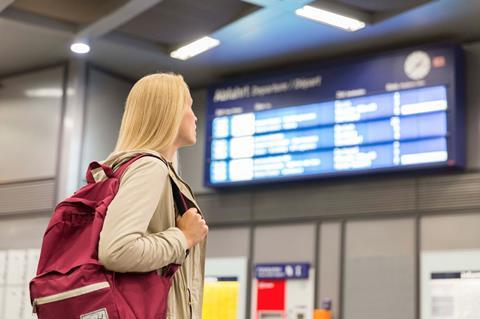
GERMANY: CAF has been named as preferred bidder for what it says is the largest order to date for battery trains. This covers the supply and maintenance of more than 60 electric multiple-units which will be able to operate on non-electrified sections of the Niederrhein-Münsterland network.
Announcing the selection on June 24, the Rhein-Ruhr and Westfalen-Lippe transport authorities said the Spanish company had submitted the most economical offer in terms of delivery, maintenance and energy consumption over the whole life-cycle.
The tendering process began in 2018, and involved several rounds of negotiations with potential suppliers to optimise the proposals. ‘We have once again succeeded in motivating vehicle manufacturers to design and further develop maintenance-friendly and energy-efficient vehicles’, said VRR board spokesman Ronald RF Lünser.
Formal award of the contract is subject to the 10-day regulatory standstill period. The BEMUs will be bought by the two transport authorities, and made available to the future operating contractors which will be appointed through separate tendering processes.
‘Cutting edge’
CAF said the Civity BEMUs would have ‘cutting edge’ technology for use on non-electrified lines, adding that the order would be ‘yet another feat for the CAF Group in the German market’, which is ‘known for its extremely high standards’.
The BEMUs are to be supplied in two lengths, providing 120 or 160 seats at a wider pitch than current trains. They will offer level boarding from 760 mm high platforms, wheelchair spaces, multi-purpose areas for bicycles and prams, folding tables, power sockets and free wi-fi.
Niederrhein-Münsterland network
The BEMUs will be deployed on the Niederrhein-Münsterland network of seven routes, where two contracts are to be awarded for services totalling more than 6 million train-km/year.
From December 2025:
- RE44 Kamp-Lintfort – Moers – Duisburg – Oberhausen – Bottrop;
- RB31 Xanten – Moers – Duisburg;
- RB36 Oberhausen – Duisburg-Ruhrort.
By December 2028:
- RE10 Kleve – Geldern – Krefeld – Düsseldorf;
- RE14 Essen – Bottrop – Dorsten – Borken/Coesfeld;
- RB41 Geldern – Krefeld – Neuss
- RB43 Dortmund – Herne – Dorsten.
The use of BEMUs is expected to reduce the proportion of diesel train-km on local rail passenger servces in the VRR area to less than 10%.
‘If we were to use diesel vehicles again on the network, they would emit around 24 000 tonnes of CO2 per year’, said Lünser. ‘The new electric vehicles are not only quieter, they also do not emit any fine dust or nitrogen oxides.’
Joachim Künzel, Managing Director of NWL, said ‘with this future-oriented vehicle technology, we are making a significant contribution to climate protection and offer an environmentally friendly incentive to switch from private cars to rail. This brings us closer to our goal of gradually dispensing with diesel vehicles in the NWL area in the coming years.’
















